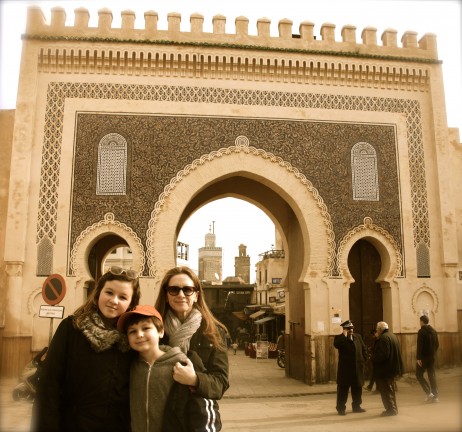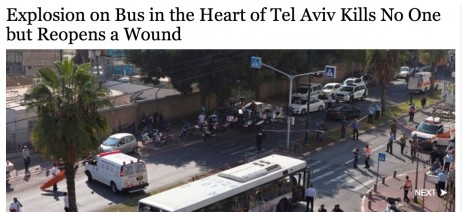As we were strolling into the Fez medina at sunset the other night, strutting casually, feeling completely at home, we all laughed at a memory from six months ago. Way back in Buenos Aires in August (which seems almost like a different lifetime), we were warned that the train station is dangerous and don’t have our cameras out there. When we entered the train station, we walked four across, arms locked together like Dorothy, the Tin Man, the Scarecrow and the Lion. Now just six short months later, we were walking through an empirically more scary place without the slightest hint of trepidation. Our current selves got a big kick out of the memory of our former selves walking so frightened through a normal train station in broad daylight.
 When traveling, we are always trying to balance our thirst for adventure with realistic caution. A few times on the journey we have had to make judgement calls and alter the path of our trip based on real time world events. The three minor course corrections are embodied in these New York Times headlines below. It’s very interesting traveling the world, being attuned to world events in a way you’ve never been before, and having to figure out just how you interact with that event.
When traveling, we are always trying to balance our thirst for adventure with realistic caution. A few times on the journey we have had to make judgement calls and alter the path of our trip based on real time world events. The three minor course corrections are embodied in these New York Times headlines below. It’s very interesting traveling the world, being attuned to world events in a way you’ve never been before, and having to figure out just how you interact with that event.
We read this on November 22, 2012, twenty-six days before our we were intending to land in Tel Aviv for a two week stretch at Christmas. We were meeting our friends the Ehrlichs in Israel and this was time we were all finalizing our plans. Tensions had been escalating in the region for several days, with rockets fired into Israel and Israeli troops amassing at the border. Even in spite of this, we were still thinking of continuing with our original plan. But a bus bombing in Tel Aviv changed our minds. We (and the Erlichs) redirected ourselves to Barcelona for Christmas, vowing to get to Israel once things settled down again. By the middle of February, we landed in Tel Aviv — and though the violence of November had shaken people, life had returned to normal. This is Israel after all. On a scale of 1 to 10 — one being overly cautious, ten being just plain smart — we’d say this call was about an eight at the time. Of course, any visitors to Tel Aviv at Christmas had a calm and peaceful experience, but at the moment, it felt like the right decision for our two families.

Okay, this headline appeared in the New York Times on January 16 as we sat in a restaurant in the French Alps, planning our departure for Morocco five days later. The French owner of the restaurant who we had become friends with came over to our table, knowing that we were headed for North Africa and spoke to us in French so the kids wouldn’t understand: “I don’t want you to go to North Africa, not now.” We explained to the kids what was going on down there, that the tension was in neighboring Algeria, not Morocco, and we spent a few days considering what to do. We texted our friend Carlos in Barcelona for his perspective. “I think you should be careful,” he wrote. “If you do go, stay in the big cities. Your orange hat is too obvious: 100% American.” After much deliberation, we decided to delay our trip to Morocco for a couple weeks and first go to Portugal and Southern Spain to give us time to get perspective. When we arrived in Morocco in early February, we found out that none of the violence in Mali and Algerian had affected things there at all. On the overly cautious to smart scale, this was about a three. (Though luckily, it turned out that the weather was substantially better when we were in Morocco than during the time of our original plan.)

While rejiggering our itinerary, we decided to travel from Israel at the beginning of March down to Kenya for two weeks before arriving in Paris. Being in the Middle East already, it seemed geographically convenient to jump down there for a safari, missing the winter chill in Europe. But our contacts in Kenya began hinting that this might not be a good time to come. They weren’t very insistent at first but their tone grew more emphatic as we got closer. Almost any other year a March safari would be fine, but this year was an election year, and the last election in Kenya in 2007 erupted into tribal violence that left over 1,000 dead. Once we told our Kenyan friends that we would be delaying our visit, you could feel the relief emanating from their email. That made this decision a ten. Fortunately, our friend Kerry just wrote us from Kenya: “We are so happy that everything went peacefully and we’re proud of our country. It was very worrying for everyone with the possible threats of violence which would ruin our nation. Now back to life as normal.” We look forward to visiting them soon.


All of this makes perfect sense to me, but then I’m not a big risk-taker when it comes to choices of travel destinations. It strikes me that this is one of the best aspects of the way you are doing this year; you have the flexibility to change or postpone plans. Bravo and we all need you to be safe! Enjoy.
Soldier on, orange hats! And maintain that fine balance…
Distrust and caution are the parents of security.
Benjamin Franklin
“Man cannot discover new oceans unless he has the courage to lose sight of the shore.”
― André Gide
I’ve thought about you guys during all of these events and wondered how you were approaching. Great idea to share.
Good thinking all around. Who was it that said something like, “Err on the side of caution”?
Yet, I love this quote below. Thanks Andre’ and Liz!
“Man cannot discover new oceans unless he has the courage to lose sight of the shore.”
― André Gide
xox,#1FANNY
We have nothing but admiration for how you all have navigated your journey. Thanks for sharing this. Safe travels!
Please say you stopped wearing the orange hat
I actually told him that if I can’t wear the orange hat, I’m not going. The orange hat is part of us. Mine (Mark’s) is what allows the family to find me in a crowd, and Finn’s is a key part of keeping an eye on that guy. Besides, it just looks so damn good.
Your Father-Son orange hats rock!
Please don’t change them…especially for the local jihadists!
xox,#1FANNY